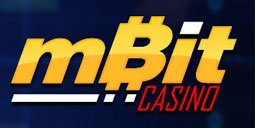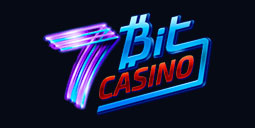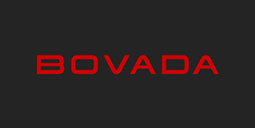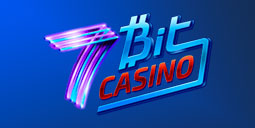Three Definitions of Tokenomics
This can be “tokenomics” defined in its own very first and most direct feel, a self-funding mechanism for jobs inside the crypto market.
We may remember Satoshi’s lament that there is nothing to compare bitcoin to. But that doesn’t mean we can not locate our own definitions with time.
Now, although the current marketplace has taken the ERC-20 token as the default standard for token implementation, this doesn’t indicate it is the only way to create tokenomics function.
For now, the attitude of financial regulators worldwide can best be characterized as comparatively permissive. As long as deceptive behaviour and flagrant derelictions of securities legislation are averted, a none-too restrictive kind of self-governance has been tolerated.
Published at Sat, 17 Mar 2018 08:50:12 +0000
The most important part of cryptocurrency is it signifies extra money, the ability for a token to perform anything is programmed and also to continue to execute that function as long as the network is busy. The way, that has taken shape in the current market is that the comparison of utility and safety tokens, but that doesn’t indicate the industry is set.
What has captured the attention of the wider public and mainstream press with this new mechanism would be that the absolute scale of that financing.
In much the same way the crypto market has been constructed on the “blunt” instrument of bitcoin as a way of shifting value, for now, tokenomics is constructed on the blunt instrument of self-funding. In this sense, our final definition of tokenomics is intentionally open, it is the listing of economic activity that has been generated through the invention of crypto tokens (compared to cryptocurrencies) and mostly, but not restricted to, the ERC-20 token benchmark.
Three pillars image via Shutterstock
The most recent improvement to the scene has been volatile, combining extreme decentralist impulses with a Wild West entrepreneurial soul: the initial coin offering (ICO). What has indicated this tendency most clearly has become the proliferation of a new asset category, the ERC-20 token, many commonly representing a share, quite loosely defined, at a nascent organization, business or project.
We’ve even watched as stars such as Paris Hilton and Floyd Mayweather have promoted such ICOs, much to the chagrin of the SEC, who issued a warning regarding such endorsements.
Much Goldman Sachs, never the friendliest commentators about the crypto market, issued a report noting that token sales have eclipsed venture funds as the primary source of funding for early-stage technology companies.
This has led to the very nature of this token staying open-ended, frequently a practical decision, because the definition has serious regulatory consequences.
In our previous example of this RPG, the token may be used to buy in-game weapons to enhance your character’s energy. Although this involves the usage of this comparatively qualitative economic term utility, within tokenomics utility will mean “use case.”
Tokens by function
These tokens can implement any remedy, and it is highly possible that we’re just starting to see the potential from the token economy.
To ameliorate the sticky problem of this token as a financial instrument, many ICOs ensure they cannot be considered as such, many frequently by defining their token through its utility.
We’ve been here earlier from the crypto-economy, in a stage where we struggle to conceptualize a procedure happening in real time, showing new facets and constantly confounding expectations.
Disclaimer: This article shouldn’t be chosen as, and is not intended to supply, investment advice. Please conduct your own thorough research before buying any cryptocurrency.
This procedure removes the need for venture capital and builds a direct connection between startups and a open field of crypto investors. Oftentimes, there will be more traditional seed financing or private sales involved, but it is the public sale that can generate the maximum funds.
We would add this utilize instance comes with a double-meaning: that the use-case (utility) inside the internal ecosystem of this ICO, such as an in-game boost, along with the use-cases within a company, such as paying for solutions, development or wages.
James Waugh is a ICO advisor and manager in Blueblock consultancy.
Given that the glut of funds flowing into this area, it is very surprising that the market and the market it undergirds remains so ill-defined. However, the ambiguity is not incidental, it is a direct results of this regulatory twilight zone in which ICOs operate.
Let’s imagine a simple example: a startup decides that it wants to make a roleplaying game (RPG) that exists on the ethereum blockchain. So as to increase funds to make and then develop the game, as well as cover all related expenses (wages, advertising, etc.), it decides to undertake a ICO.
The evident correlate is a share in a company where the investor expects to get a return according to performance. Within this version, tokenomics will adopt the best standards from the applicable regulatory body, but it is not uncommon for ICOs to just ignore them (or, as will be common too, to be ignorant of these).
Tokens by economic activity
The crypto market continues its constant growth, encompassing the traditional world of cryptocurrencies and its own business offshoot, the blockchain phenomenon.
This last definition makes the premise that we’re currently in the earliest phase of the type of economic activity and that we hope to see innovation happening at the normal rate of this crypto-economy, namely at breakneck speed.
In practice, this translates to the introduction of a particular token that may be bought in a sale, often during other cryptocurrencies, and that capital is then funneled back in the undertaking.
The chief in blockchain information, CoinDesk is a press outlet that tries for the greatest journalistic standards and abides by a strict series of editorial policies.
When not explicitly mentioned as a safety, and operating at complete compliance to what that involves, a token has tended to become defined by its utility. Here is the token defined through its own function. A token understood as a security is a financial instrument that mirrors the standard securities found inside the “regular” market.
The SEC will crack, as we have seen lately, on clear-cut scams, but to everyone else, the guidance has pretended to be if your token is a safety then you want to register with us but otherwise, then it is hands-off for the moment.
Three Definitions of Tokenomics - April 2024
EXPERTLY REVIEWED
MOBILE FRIENDLY
FAST PAYOUTS
- CasinoRatingBonusVisit Casino
Get your 100% Match Bonus up to $1000!
200% match bonus up to 2000
Up to 5 BTC
Get up to 1 BTC on First Deposit!
Get your 5 BTC Welcome Bonus
Bitcoin Current Price
Top Rated






Search
Casino List
- 7bit Casino
- Bovada Casino
- Bitstarz Casino
- Ignition Casino
- Sun Palace Casino
- Aladdin's Gold Casino
- Casumo Casino
- Lucky Red Casino
- Fortunejack Casino
- Mbit Casino
- Mars Casino
- Club World Casinos
- Slotocash Casino
- Drake Casino
- Grand Fortune Casino
- High Noon Casino
- Royal Ace Casino
- Cafe Casino
- Raging Bull Slots
- Oshi Casino
- Betchain Casino
- Casino Extreme
- Vegas Casino.io
- Bitcoin Penguin Casino
- Joe Fortune Casino








